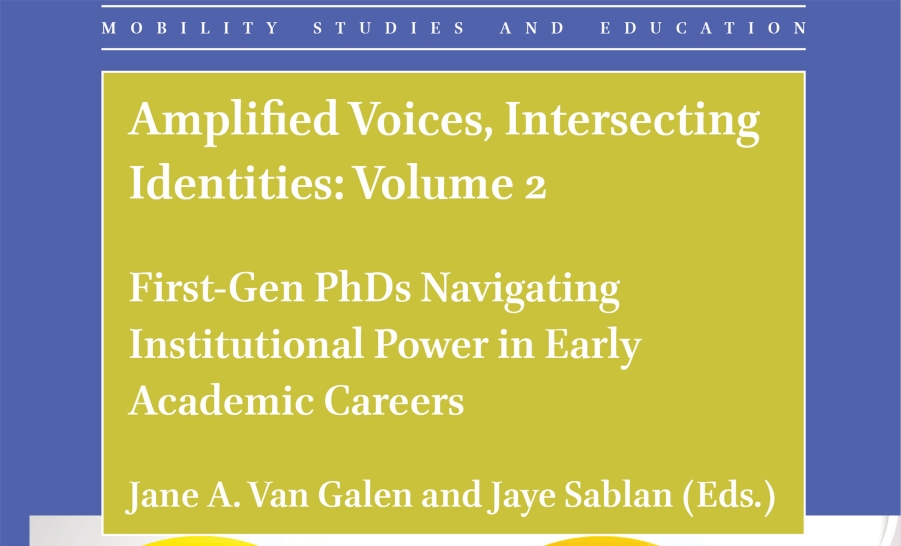Using Required Courses to Expand First-Gen Mentorship Accessibility
The authors present a departmental initiative designed to address gaps first-gen students face in accessing career mentorship.
Van Galen & Sablan / Brill | Sense / October 2020

The contributors to Amplified Voices, Intersecting Identities: First-Gen PhDs Navigating Institutional Power in Early Careers overcame deeply unequal educational systems to become the first in their families to finish college. Now, they are among the 3% of first-generation undergraduate students to go on to graduate school and then become faculty, in spite of structural barriers that worked against them.
These scholars write of socialization to the professoriate through the complex lens of intersectional identities of race, ethnicity, gender, sexuality, ability and social class.
These first-generation graduate students have crafted critical narratives of the structural obstacles within higher education that stand in the way of brilliant scholars who are poor and working-class, Black, Indigenous, Latinx, Asian, immigrant, queer, white, women, or people with disabilities. They write of agency in creating defiant networks of support, of sustaining connections to family and communities, of their activism and advocacy on campus. They refuse to perpetuate the myths of meritocracy that reproduce the inequalities of higher education. In response to a research literature and to campus programming that frames their identities around “need”, they write instead of agentive and politicized intersectional identities as first-generation graduate students, committed to institutional change through their research, teaching, and service.